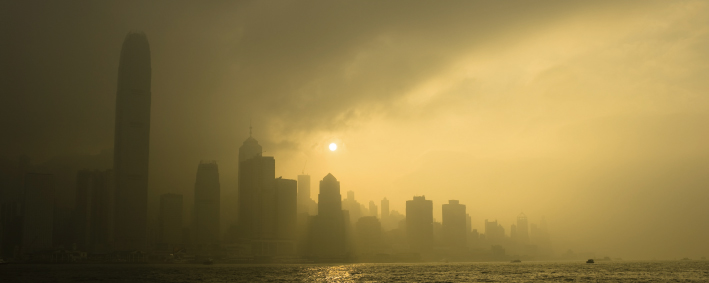 |
CCCH9008 China: Culture, State and SocietyHong Kong’s Environment: Issues and Policies[This course is under the thematic cluster of ‘Sustaining Cities, Cultures, and the Earth’.] |
Course Description
This course will provide students with a regional and comparative perspective to examine the complex inter-relationships between the socio-economic-political processes and the deteriorating environmental and ecological conditions of Hong Kong. This perspective will help students develop an in-depth understanding of the larger issues impinging on the city’s ecological future. It will also enable them to think critically of the material causes and consequences of the changing nature of environmental challenges associated with sustained economic and urban growth, both in Hong Kong and in its neighbouring jurisdictions in Southern China. The course is organized around three major themes to help achieve its overall objectives: the sustainability dimensions of Hong Kong as a compact city; the links between economic restructuring and changing environmental challenges; and the constraints to, and opportunities for, cross-boundary environmental cooperation.
[Students will be required to participate in a field trip to be organized during Reading week. Details of the field trip will be made available to students in the first week of the semester.]

Course Learning Outcomes
On completing the course, students will be able to:
- Describe and explain the causes, contours and consequences of major environmental issues in Hong Kong.
- Compare and contrast the similarities and differences of the environmental challenges faced by Hong Kong and its neighbouring jurisdictions in Southern China.
- Examine critically the strengths and limitations of the policies formulated to address environmental problems in Hong Kong and its neighbouring jurisdictions in Southern China.
- Demonstrate an awareness of the complex relations between the socio-economic-political processes and environmental change in a high-density urban setting.
Offer Semester and Day of Teaching
First semester (Wed)
Study Load
| Activities | Number of hours |
| Lectures | 24 |
| Tutorials | 12 |
| Fieldwork / Visits | 8 |
| Reading / Self-study | 36 |
| Assessment: Essay / Report writing | 40 |
| Assessment: Presentation (incl preparation) | 10 |
| Assessment: Examination (incl preparation) | 10 |
| Total: | 140 |
Assessment: 50% coursework; 50% examination
| Assessment Tasks | Weighting |
| Term paper | 30 |
| Field trip report | 10 |
| Tutorial presentation and participation | 10 |
| Examination | 50 |
Required Reading
- Chiu, S. W. K., Hung, H. F., & Lai, O. K. (1999). Environmental movements in Hong Kong. In Y. S. Lee & A. Y. So (Eds.), Asia’s environmental movements: Comparative perspectives (pp. 55-89). Armonk, NY; London: M. E. Sharpe.
- Corlett, R. T. (2004). Sustainable and biodiversity conservation in Hong Kong. In T. Mottershead (Ed.), Sustainable development in Hong Kong (pp. 421-444). Hong Kong: Hong Kong University Press.
- Dudgeon, D., Corlett, R., & Friends of the Country Parks. (2004). The ecology and biodiversity of Hong Kong (1st ed.). Hong Kong: Friends of the Country Parks: Joint Publishing (HK).
- Hills, P., & Welford, R. (2006). Ecological modernisation and corporate environmental governance in Hong Kong. In R. Welford, P. Hills & W. Young (Eds.), Partnerships for sustainable development: Perspectives from the Asia-Pacific Region (pp. 209-252). Hong Kong: Centre of Urban Planning and Environmental Management, The University of Hong Kong.
- Lai, O. K. (2000). Greening of Hong Kong? Forms of manifestation of environmental movements. In S. W. K. Chiu & T. L. Lui (Eds.), The dynamics of social movement in Hong Kong (pp. 259-296). Hong Kong: Hong Kong University Press.
- Lee, Y. S. F. (2002). Tackling cross-border environmental problems in Hong Kong: Initial responses and institutional constraints. The China Quarterly, 172, 986-1009.
- Lee, Y. S. F. (2003). Environmental consciousness in Hong Kong. Tonan Ajia Kenkyū [Southeast Asian Studies], 41(1), 15-35.
- Morton, B. (1996). Protecting Hong Kong’s marine biodiversity: Present proposals, future challenges. Environmental Conservation, 23(1), 55-65.
- Ng, C. M., & Lee, Y. S. F. (2007). Environmental safeguards and breakthroughs. In Y. M. Yeung (Ed.), The first decade: The Hong Kong SAR in retrospective and introspective perspectives (pp. 321-350). Hong Kong: Chinese University Press.
- Stern, R. E. (2003). Hong Kong haze: Air pollution as a social class issue. Asian Survey, 43(5), 780-800.
Course Co-ordinator and Teacher(s)
| Course Co-ordinator | Contact |
| Dr F.Y.S. Lee Department of Geography, Faculty of Social Sciences |
Tel: 3917 2840 Email: leey@hku.hk |
| Teacher(s) | Contact |
| Dr F.Y.S. Lee Department of Geography, Faculty of Social Sciences |
Tel: 3917 2840 Email: leey@hku.hk |
| Dr C.N. Ng Department of Geography, Faculty of Social Sciences |
Tel: 3917 7025 Email: cnng@hku.hku.hk |

